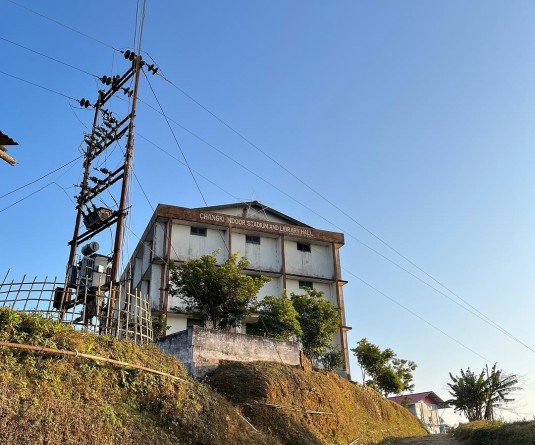
Our Correspondent
Kohima | December 8
The fourth edition of the annual Hutton Lectures Symposium, Kohima Institute began on December 8 with Prof. Siv Ellen Kraft, of UiT—The Arctic University of Norway delivering the Keynote address.
The Kohima Institute along with the North East Forum (NEF), and Centre for Community Knowledge (CCK) at Ambedkar University, Delhi (AUD), as well as The South Asianist Journal of Edinburgh University, UK, will be holding the annual lecture from December 8 and 9 at de Oriental Grand Hotel, Kohima, Nagaland.
Focusing on Indigenous Knowledge, Prof. Ellen Kraft delineated the new and emerging forms of Indigenous knowledge in relation to pan indigenous religion with a special emphasis on the ongoing protests at Standing Rock, US against the Dakota Access pipelines. Proclaiming themselves as Protectors rather than protestors, the Standing Rock protest movements is considered a grassroots movement of the indigenous peoples in the US who also have received greater support from indigenous peoples across the world. One of the primary identities of Indigenity being indigenous religion, the Standing Rock movement has also instilled the indigenous religion among the protestors.
Prof. Kraft also stated that the case of Standing Rock is interesting because it is one of the largest gatherings of different indigenous peoples, where the various groups are working in collaboration and solidarity for a particular cause.
“Indigenous people are becoming more similar but they are also becoming more distinct due to the awareness of selfhood and identity,” said Prof. Ellen Kraft.
The Standing protest movement has also created a ritual liminality, a liminal space where people live outside their normal habitat where their lifestyles and social statuses are suspended.
Another aspect is the 'a mediascape of their own making' as Prof. Kraft mentioned where the indigenous peoples in the protest has been able to develop their own news in their own perspectives with the help of social networking sites without relying on mainstream media Envisioning ‘a diffusion of knowledge between international scholars and local writers, thinkers, scholars, and social leaders’, the symposium will focus on the “cross-fertilisation of indigenous knowledge and new forms of transmission, encouraging different perspectives on ways of knowing and of disseminating knowledge, including experiential knowledge.”
According to the organizers, the presentations by international, national, regional, and local scholars will discuss on the fraught historical, ideological, and diffusing genealogies of ‘indigenous’ and its epistemological status in relation to western science, as well as important contemporary uses of the term (particularly by activists) in political debates, and in relation to developmental aid, and environmental conservation.
Founded in 2013, the Kohima Institute’s year-end Hutton Lectures symposium is funded through the generous support of private donors, and governmental and non-governmental institutions alike. It is organised in collaboration with institutions of both national and international repute. Some of its previous partners included the Department of Art and Culture, Government of Nagaland; the Museum of Archaeology and Anthropology, Cambridge University, UK; the Ethnological Museum of Berlin and University of Tübingen, Germany; the University of Oxford, UK; and the Centre for South Asian Studies, University of Edinburgh, Scotland.
The second day of the symposium will comprise of workshops, panel discussions and interactions on the topics ‘Foods, orality, language, and practices’, ‘Orality, knowledge, and transmission’, and ‘Indigenous knowledge and contemporary times’.
Registrations will begin at 8:30 a.m., with a fee of Rs. 500. Interested person(s) may contact via message at 70056-05596 and 98188-04474 or email <kekhrie@yahoo.com>.
Presentations, papers, and exhibitions will be edited and published in The South Asianist Journal at Edinburgh University, and appear in book form in 2017





